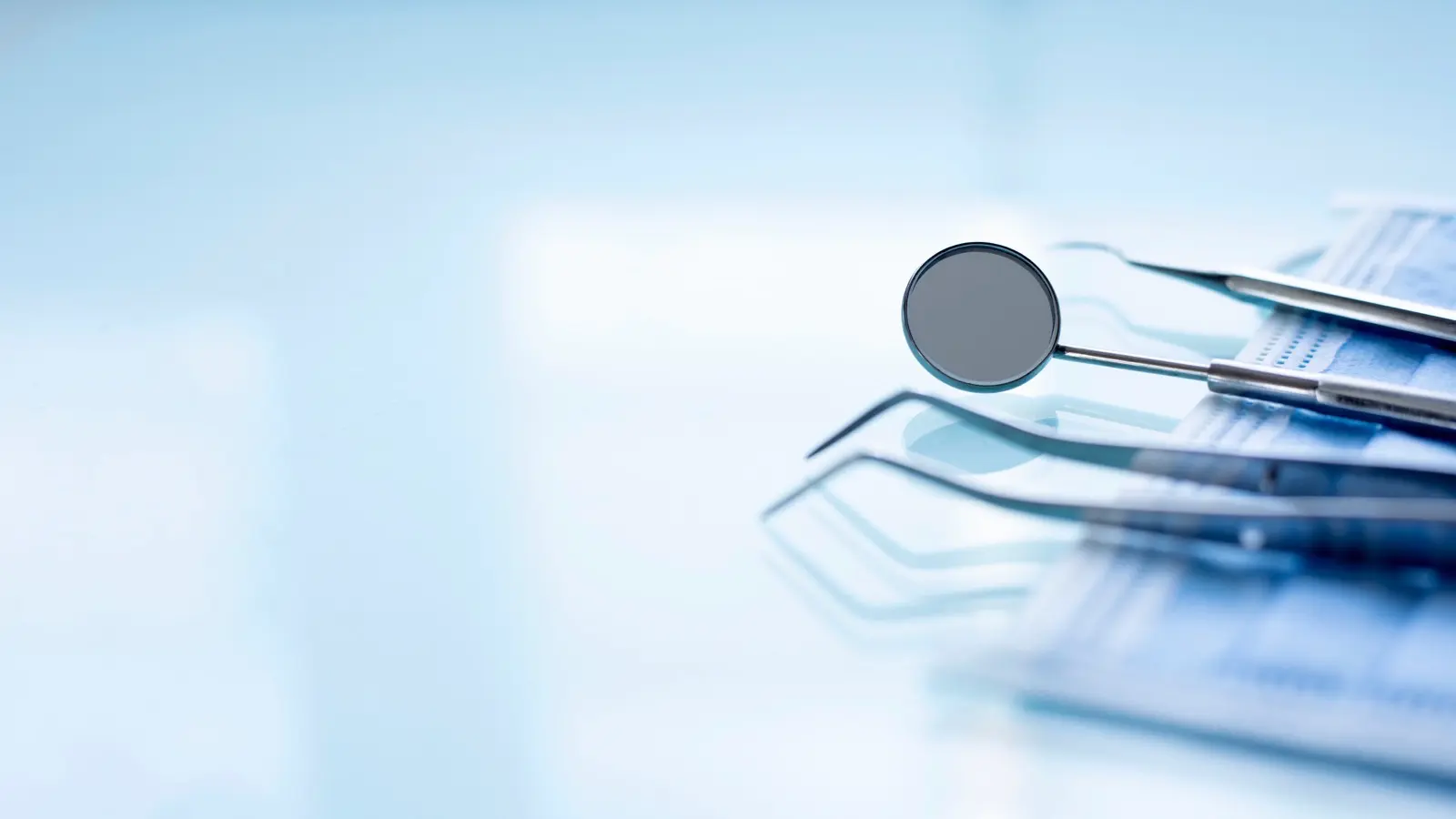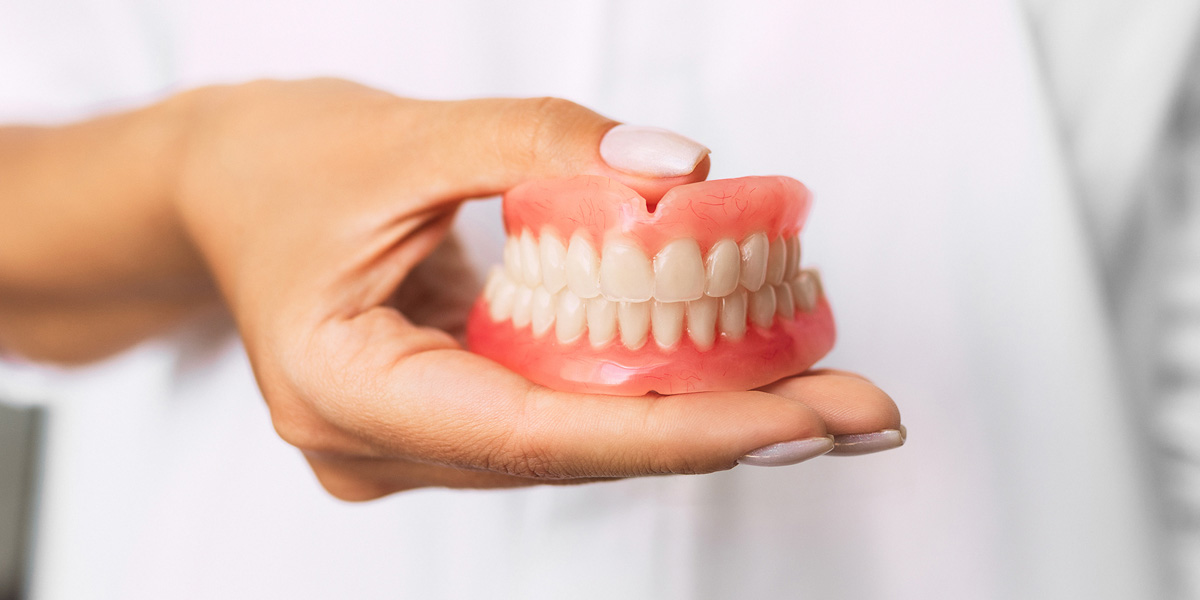For many, the transition to wearing dentures brings about a mix of excitement and trepidation. On one hand, there’s the prospect of a rejuvenated smile and improved oral function. On the other, there’s the question of adjusting to this new dental fixture.
One of the significant concerns is eating. Can you still enjoy your favorite meals? Will foods taste different? Navigating the culinary world with dentures does require some adjustment, but with time and patience, you’ll find that your palate’s pleasures aren’t compromised.
At River District Smiles Dentistry, we understand that getting used to dentures can be a significant adjustment in your life. Whether you’re new to dentures or have been wearing them for a while, we want to make sure you can enjoy your favorite foods without any worries. Eating with dentures may seem challenging at first, but with a few practical tips and some patience, you can savor your meals with confidence and comfort.
The Adjustment Period: Setting Realistic Expectations
Firstly, it’s essential to understand that there will be an adjustment period. Just as you needed time to adapt to braces or other dental appliances, dentures come with their learning curve. Initially, biting and chewing may feel different, and certain foods might pose a challenge. But don’t be disheartened. With practice and some handy tips, you’ll soon be dining with ease and enjoyment.
How Do You Enjoy Food with Dentures?
The key to enjoying food with dentures lies in starting slow and making incremental changes to your diet as you get accustomed to your new appliance.
- Begin with Soft Foods: Start with soft, easily chewable foods like mashed potatoes, pudding, oatmeal, and soft fruits. This will give you a feel of the denture’s fit and functionality without posing too much of a challenge.
- Avoid Extreme Temperatures: Extremely hot or cold foods can be uncomfortable as the denture can transfer these temperatures directly to your gums. Allow foods to come to a moderate temperature before consuming.
- Use Both Sides to Chew: Distribute the pressure evenly by chewing on both sides of your mouth. This not only helps in breaking down food efficiently but also ensures the dentures remain in place.
- Practice Makes Perfect: Just like any new skill, eating with dentures will require practice. Over time, you’ll learn to navigate around foods, bite correctly, and chew efficiently.
Can You Eat Food with Dentures?
Absolutely! The purpose of dentures is to restore functionality, allowing you to eat a wide variety of foods. However, some foods can be trickier than others. Sticky foods, like caramel, might adhere to the denture, while hard foods, such as whole apples or nuts, could dislodge them if not approached with caution. Over time, as you become more confident, you can reintroduce more foods into your diet.
What is the Best Food for Dentures?
While you can enjoy a vast range of foods with dentures, certain foods are particularly denture-friendly, especially during the initial adjustment period:
- Soft proteins like fish, tofu, and eggs
- Cooked vegetables that are tender but not overly mushy
- Grains like rice, pasta, and soft bread
- Dairy products like yogurt and cheese
- Soft fruits, such as bananas, peaches, and berries
Remember, a balanced diet is crucial for overall health, so ensure you’re getting a mix of essential nutrients.
How Do You Keep Food from Sticking to Dentures?
Sticky foods can be a challenge, but there are ways to reduce the annoyance:
- Rinse Before Eating: A quick rinse of your dentures can create a slick surface, making it harder for food to stick.
- Opt for Thinner Bites: Cutting food into smaller, thinner pieces can reduce the chances of it adhering to your dentures.
- Stay Hydrated: Drinking water during meals can help in washing away sticky residues.
- Regular Cleaning: Ensure you clean your dentures thoroughly after every meal. Not only does this maintain oral hygiene, but it also removes any food particles that might be clinging to the appliance.
At River District Smiles Dentistry, our goal is to help you maintain a healthy and enjoyable lifestyle, even with dentures. We are here to provide guidance, support, and professional dental care to ensure that your denture experience is as comfortable and fulfilling as possible.
If you have any questions or concerns about your dentures or need assistance with adjustments, please don’t hesitate to contact us. We’re committed to helping you smile, eat, and live with confidence.
Understanding the nuances of living with dentures can make the transition smoother. When in doubt, always seek advice from dental professionals who can provide guidance tailored to your specific needs.
Eating with dentures can be a satisfying experience with a little patience and the right techniques. River District Smiles Dentistry is here to support you on your denture journey, offering professional advice and assistance. Remember that adapting to dentures takes time, but with practice, you can continue to enjoy a diverse and delicious range of foods.
If you have any further questions or concerns about denture care or maintenance, please don’t hesitate to reach out to our team. Your comfort and well-being are our top priorities. Call 803-590-9525 for more information!


